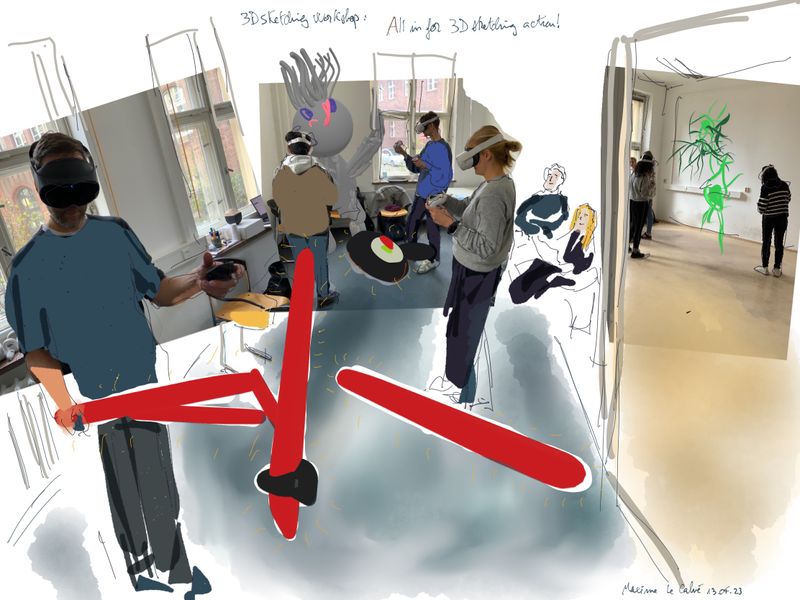
John Hawk Insunrated – Creativity in action is all around us, and hobbies are one of the best ways to unlock it. Engaging in a hobby does more than provide a fun distraction—it nurtures creativity, allowing us to think outside the box. Whether it’s painting, writing, gardening, or playing a musical instrument, hobbies offer a unique environment for the brain to explore new ideas. In this article, we’ll delve into how hobbies help foster creativity and promote innovative thinking in various aspects of life.
Hobbies may seem like simple pastimes, but they play a vital role in boosting creativity. When you engage in an activity that allows for personal expression and experimentation, your mind is encouraged to explore new possibilities. Unlike the rigid structure of work or school tasks, hobbies provide freedom to make mistakes, try new things, and discover unexpected outcomes. This openness nurtures the creative process, helping individuals break free from conventional ways of thinking.
By engaging in a hobby, you also encourage lateral thinking, which helps the brain form new connections and ideas. Whether you’re creating art or building something from scratch, hobbies help push boundaries and think beyond the ordinary.
“Read about: Opinions & Reviews You Can Trust: Sorting Through the Noise”
A significant benefit of many hobbies is that they involve problem-solving. For example, knitting a sweater may require you to adjust your design when a mistake is made, or cooking a new recipe might challenge you to make do with limited ingredients. These small, everyday challenges enhance critical thinking skills, which are essential to creativity.
The continuous problem-solving aspect of hobbies helps build the creative confidence necessary to tackle larger, more complex challenges in life. This skill also carries over to professional and personal situations, allowing individuals to approach problems from fresh perspectives.
One of the most powerful aspects of hobbies is their ability to create mental space for inspiration. When you focus on a creative activity, you allow your mind to enter a flow state, where creativity is at its peak. This “zone” allows new ideas to emerge organically, as your brain has the time and space to connect ideas that might seem unrelated at first.
By stepping away from your usual routine and dedicating time to a hobby, you provide yourself the opportunity for mental rejuvenation. This often leads to moments of inspiration that could be beneficial in other areas of life, from solving work problems to personal growth.
“Read more: Reducing Lower Back Pain Through Simple Exercises”
As you spend more time practicing a hobby, you gain confidence in your abilities. This increase in self-assurance extends beyond the hobby itself and can help you take more creative risks in other areas of life. For instance, learning how to draw or play an instrument can improve your confidence in expressing your ideas in meetings or creative collaborations.
The process of refining a skill through a hobby can create a strong belief in your creative capabilities. This newfound confidence enables you to embrace challenges and pursue innovative ideas with enthusiasm.
Many hobbies, such as team sports, group arts, or even group gardening, encourage collaboration. Working with others exposes you to new viewpoints, ideas, and approaches that may not have occurred to you on your own. This diversity of thought is crucial to creative growth, as it helps challenge existing assumptions and offers fresh perspectives.
Collaborating with others can also inspire new ways of thinking about your personal hobbies. You may discover new techniques, materials, or ideas by engaging with people who have different experiences or expertise.
Engaging in hobbies is excellent for brain health. Many activities, such as playing a musical instrument, solving puzzles, or even writing, stimulate the brain in ways that enhance cognitive function. The process of learning new skills or tackling complex challenges helps improve memory, focus, and problem-solving abilities.
These mental exercises keep the brain sharp and agile, which, in turn, enhances creative thinking. As you engage in different hobbies, you’re strengthening various cognitive areas, making it easier to approach creative challenges with a fresh mindset.
Another key benefit of hobbies is their positive effect on mental health. Engaging in a creative activity helps reduce stress, anxiety, and negative emotions. The sense of accomplishment that comes from working on a project or learning a new skill fosters a sense of wellbeing and boosts mood.
The relaxation that comes from focusing on a hobby also allows the mind to let go of the worries of everyday life. When you feel mentally calm and happy, creativity flourishes, and you’re better able to approach tasks with a clear and innovative perspective.
[SITE_NAME] – pop culture inspires modern creative expression by continuously shaping artistic trends, influencing music styles, and redefining design concepts…
[SITE_NAME] - film reviews that feel more like conversations have reshaped how audiences engage with cinema by fostering inclusive dialogue…
John Hawk Insunrated – The resurgence of analog aesthetics modern creative enthusiasts is redefining how artists and collectors engage with…
John Hawk Insunrated - personal experiments that changed my approach to daily decisions have profoundly influenced my mindset and problem-solving…
John Hawk Insunrated - creativity doesn’t have complicated formulas or rules, yet many assume innovation requires complex methods. Simplifying creativity…